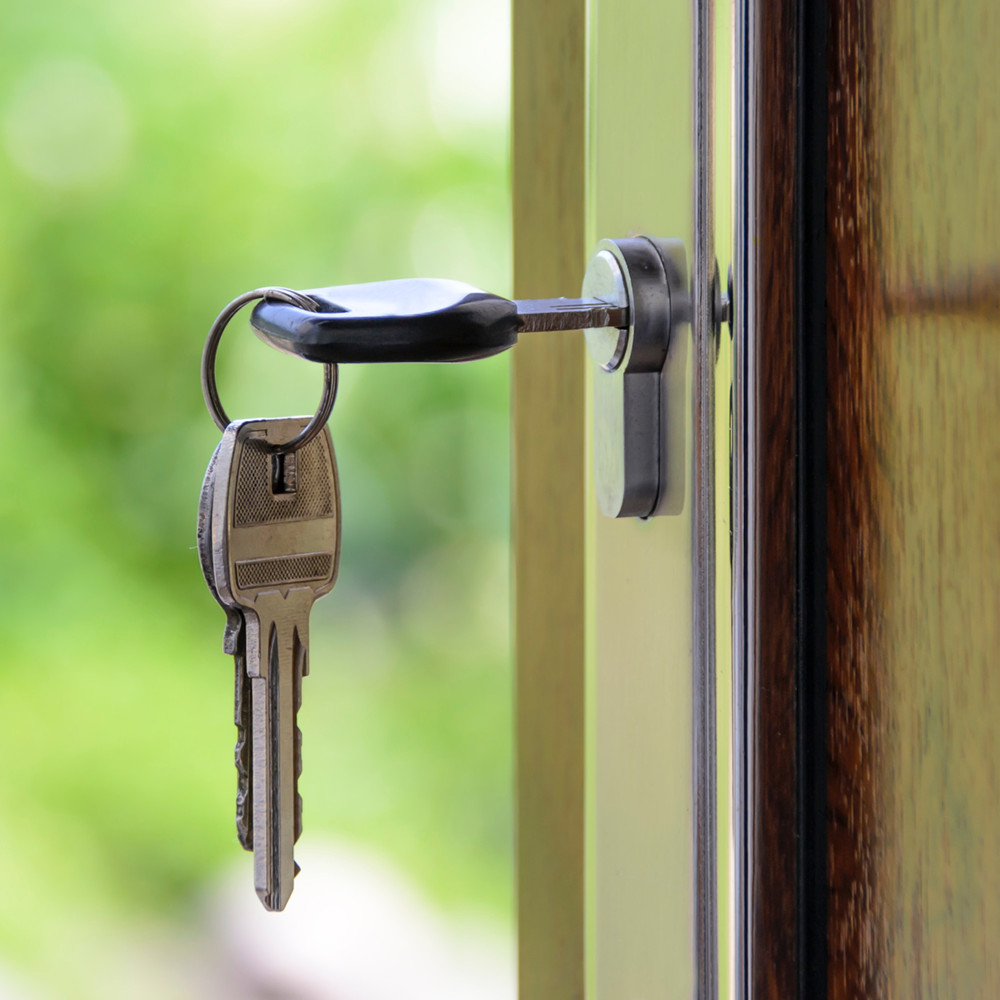So, you’ve finally decided to purchase your first house. Congratulations! It truly is an exciting adventure; however, it can also seem complicated or overwhelming for the first-time buyer. My goal with this blog is to take my nearly 20 years of experience as a real estate agent and use it to help buyers, such as yourselves, be at ease as you go through the home buying process, and help you feel more confident about moving forward in finding your dream home. So, let’s dive right in.
Step 1: The Agent
Most often many potential buyers think the first step to finding a home is to just start looking for one. Seems pretty logical, right? Not exactly. The most important first step in the home buying process is to find a licensed real estate agent. Picking the right real estate agent for you is so important that it can be compared to selecting the right hairdresser… both require a professional! With so many different agents out there, how do you find the right one? Great question! First and foremost, you should always meet your potential real estate agent in person. A real estate agent should make you feel comfortable and be willing and able to answer the questions that you have as a potential buyer. They should have effective communication, good rapport, and reliable experience. It is important that the agent has a strong knowledge of the local market in addition to your individual goals and needs. A real estate agent is a trained and licensed individual with expertise in knowing how to negotiate the best possible deal for you and possesses the discernment to know when the other party might be taking you for a ride. Overall, you should choose an agent who, along with these other qualifications, leaves you knowing you can trust them and that they’ve got your back. Personally, I would be thrilled to schedule a meeting with you. If you are a potential buyer or seller in the Polk County area of Florida, please feel free to contact me at dory@drjrealestate.com to discuss how I can best help you buy or sell a home. I am also an affiliate of the national program, Homes for Heroes. When a client buys or sells their home through this program, I am able to give back to that client a portion of my commission as a credit at closing. If you fall under any of these five hero categories (firefighters, law enforcement, military, healthcare workers/EMS, and teachers) then go ahead and click here to sign up!
Step 2: The Preapproval
Immediately after you have officially chosen a real estate agent that you trust, you will need to find a lender. It can either be through your bank, credit union, or with a different mortgage lender altogether. A mortgage lender will check your credit score and require some documents, such as proof of income, to be able to continue on with the process. Once everything checks out, they will give you the types of loans and rates you qualify for (FHA, USDA, VA, or Conventional). The mortgage lender will go over all of your options, and then you can choose which plan works best for you. The lender will then provide you with an official letter of preapproval. You will need to send this letter to your real estate agent as well. A great mortgage lender in Lakeland, Florida is The Mortgage Firm Lakeland. In fact, I know that Jimena Miranda or Charles Garneau would be delighted to meet with you to discuss your goals and how they can further assist you in your home buying process. You can contact them at jimena.miranda@tmf.mortgage or charles.garneau@tmf.mortgage.
Step 3: House Hunting
Now, here is where the home buying process really gets fun. Sit down with a pen and paper and write out your ultimate wish list for your dream home. Even include those things which you don’t want or could be potential deal breakers. Ask yourself some questions like: What am I looking for? How many bedrooms do I want? How many bathrooms? What size house am I looking for? Do I want acreage? If so, how much? Do I want to be in a gated community and am I okay with HOA (Homeowners Association) fees? These are just some of the many questions buyers need to spend time figuring out. This gives them an idea of the kind of house they want to see. The answers to these questions are also important information to give to your real estate agent, which is typically discussed in the initial meeting. The agent, through their system, will be able to send you updates on listings according to your criteria that come on the market as soon as they become active. This way you will always get to see for yourself what is available.
What happens when you do find a house that catches your eye? Contact your real estate agent and let them know the address of the home you would like to see, and they will get you an appointment. NEVER contact the listing agent directly! Your agent knows how to negotiate and talk with other agents. It is the reason you hired them. So, it is imperative that you let them use their expertise to handle all aspects of this process. Trying to work around your agent will only lead you to consequences that could have been avoided.
Step 4: Making an Offer
How much do you think the house you just saw is worth? Can you justify the listing price? Do you want the seller to pay closing costs? Are there a lot of repairs to be made? How does it compare with some of the other houses in the area? These are items you want to consider before making your offer. When making an offer on a house, this is another area where your experienced real estate agent can assist you. Your agent is skilled in the art of negotiation and making offers. Most people mistakenly think that it is as simple as in the movies where someone writes a number on a piece of paper and slides it across a desk, face down, to the other party. While this is great and entertaining to watch on the big screen, it is definitely not the case in the real world of real estate. Your agent has the expertise to guide you in your offer and present it in an acceptable, professional way to the seller’s agent, a manner which can gain you the upper hand among a myriad of offers. It is important to be aware that when you make an offer and it is accepted by the seller, you are then responsible for putting down at least 1% EMD, or an earnest money deposit, on the house. This is also commonly referred to as a “good faith deposit.” The money simply goes into a neutral account with either the title office or an attorney and will eventually go toward the buyer’s closing costs or down payment. An offer on a house cannot be accepted without it!
Step 5: The Home Inspection
It is so exciting when a seller accepts your offer over others and you have that fully executed contract. So, what comes next? The answer is a home inspection! What does that entail? A home inspection is where a licensed home inspector comes out to the property under contract and inspects the house for any major issues, as well as inspects all major components and systems (E.g., air conditioning, roof, electric, appliances, plumbing, foundation). If you want other items inspected on the house such as septic or well, mold or termite, then these are separate inspections that can be additionally completed. Keep in mind there will be an additional cost for each type of inspection. These inspections are to prevent you from purchasing a home that could potentially have disastrous or expensive consequences in the future. Once the inspection is complete, you will receive an inspection report with any findings that may require renegotiation. Once again, this is where your professional and experienced real estate agent comes in and uses their negotiating skills to get you the best possible deal. In another blog post, I will explain more on the cost and timeframe of these processes, as well as other costs to prepare for when buying a house.
Step 6: The Home Appraisal
Hooray! The house passed the inspection and all the repairs, if any, have been completed. You are now on your way to the next step in this exciting home buying process. The appraisal. The appraisal occurs after the inspection has passed or after all the necessary repairs have been made. The lender will handle scheduling an appraiser, which is with a neutral party, to come to the house and do an evaluation of the entire property, interior and exterior. This is to evaluate if the price point that the seller is listing the house for is an accurate or fair value. Remember that Homes for Heroes program I mentioned earlier? Well, here is more great news about that. If you go through a Homes for Heroes Lender, your appraisal will be free. That is a $500 savings! So, if you haven’t done it already, sign up today and they will reach out to you!
Step 7: Closing Day
Now, the day you have been waiting for has finally arrived. Closing day! The day when you sign those papers, get your keys to your new home, and this whole process is finished at last. The final step in the home buying process is closing. This is when you sign all documents related to the purchase of your house. The closing agent will go over all the papers, so, you are thoroughly informed of what you are signing and why you are signing it. You will need to bring the following items with you to the day of closing:
- Your ID or driver’s license, social security card, and/or birth certificate of anyone who is purchasing the house and whose name will be on the deed.
- A cashier’s check or a certified check in the amount that will be due at closing. This will be the remaining closing costs and the down payment on your house.
- A huge, happy smile! You have just successfully purchased your home and you officially have those keys in your hand!
I hope that this post has given you some peace and has helped to put to ease any anxiety you may have had about the home buying process. Whether you are a buyer or a seller, please check out my other blogs and videos which delve into various real estate topics, so, you can stay better informed and better equipped.

